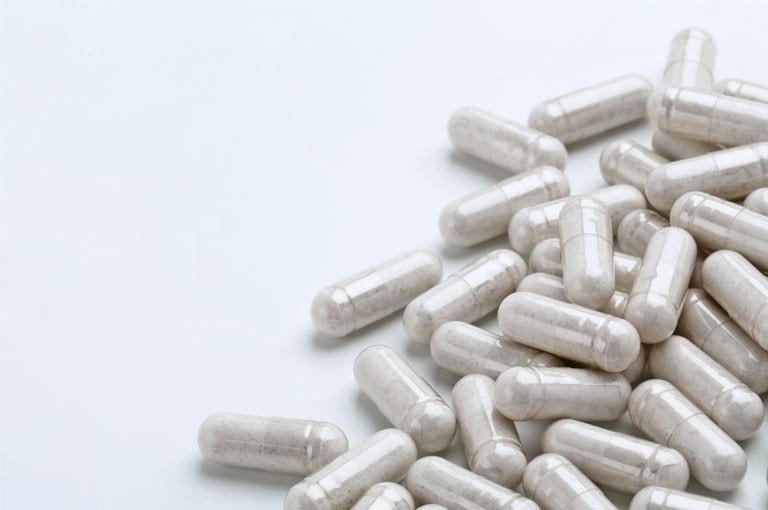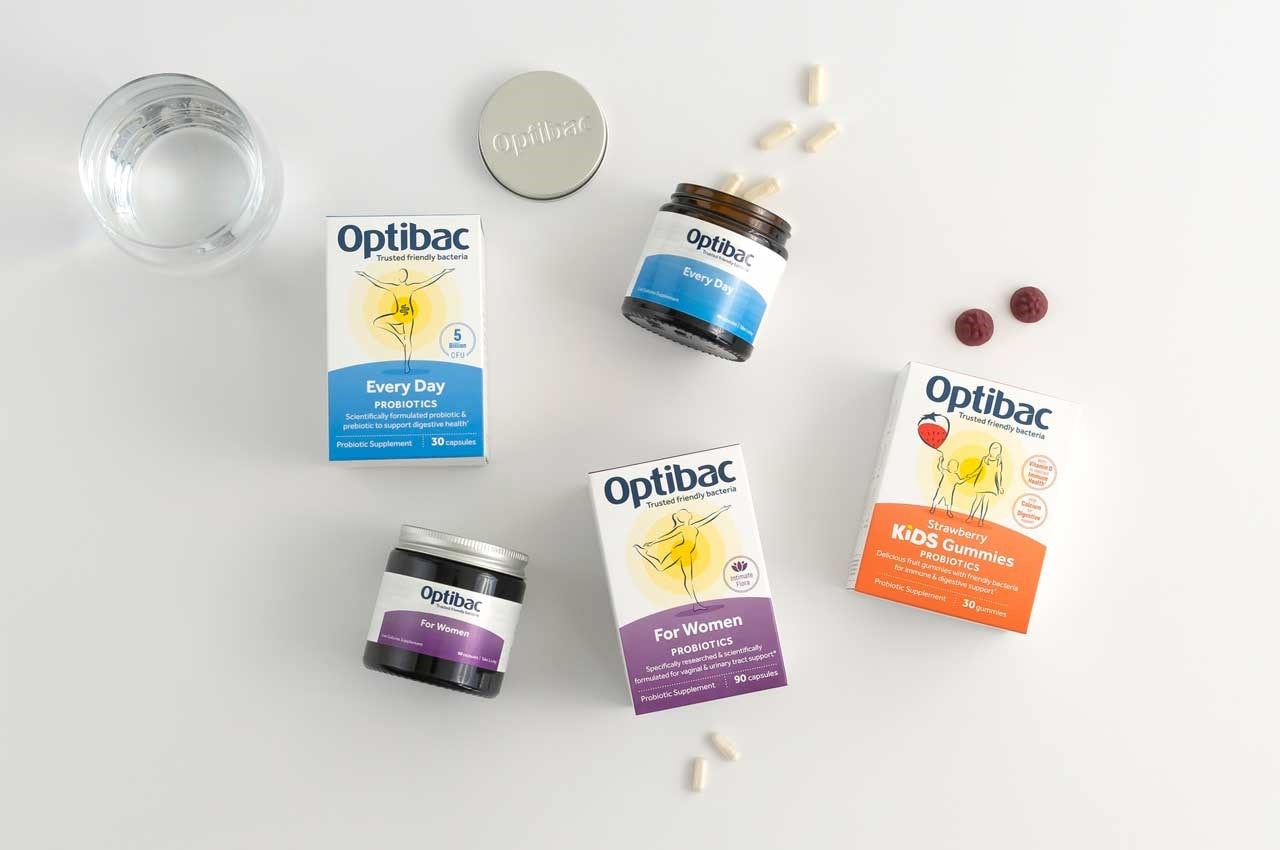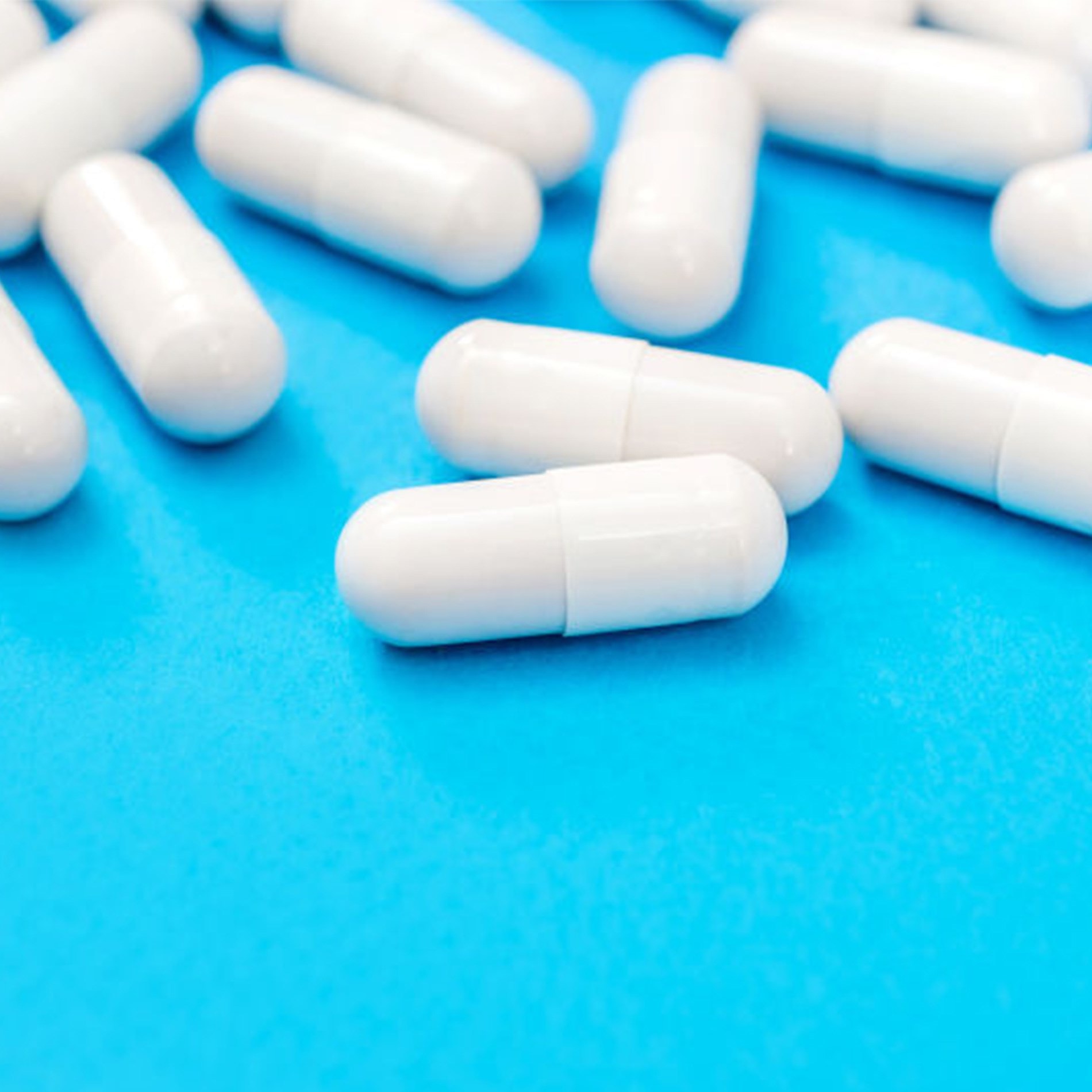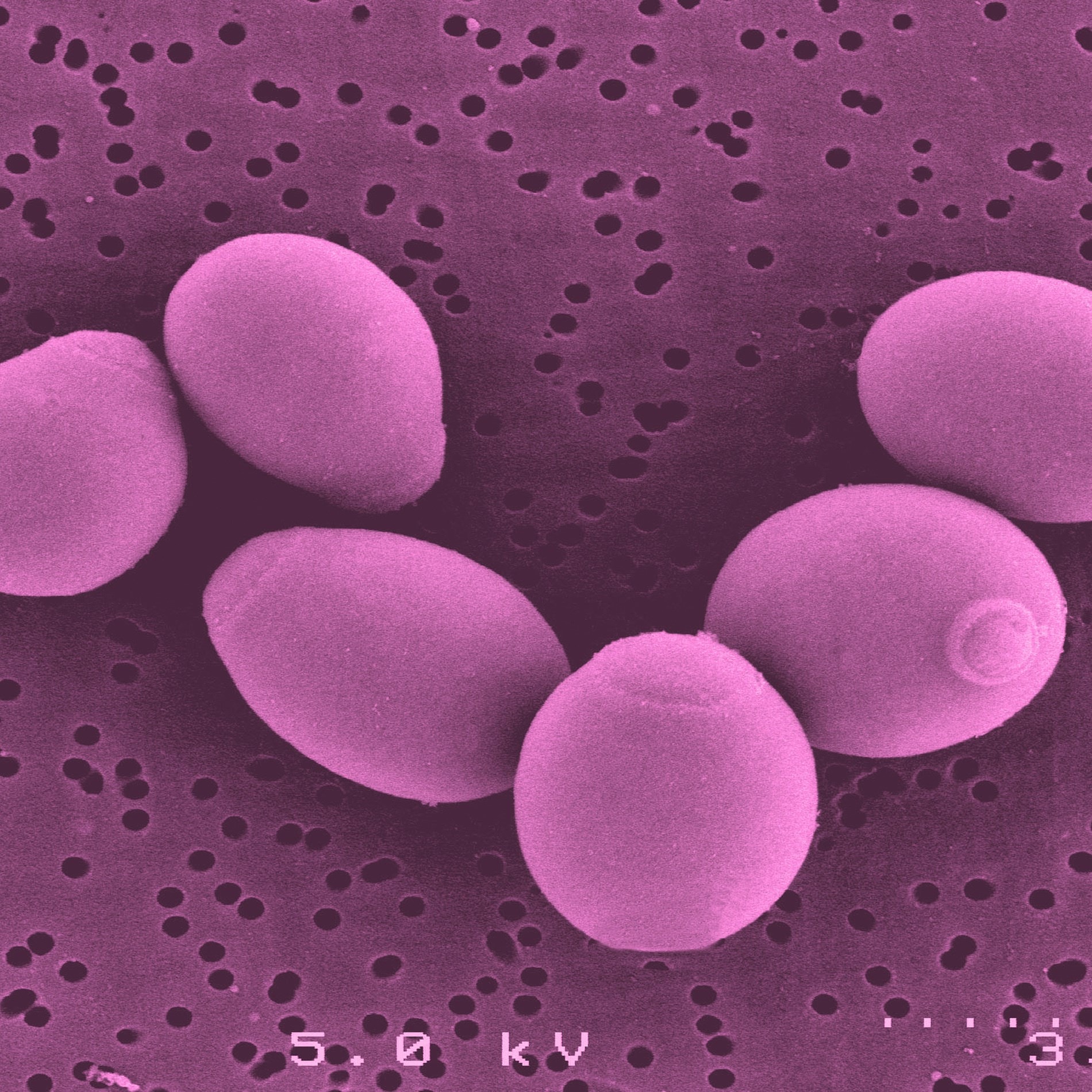Probiotics and Side Effects - an in-depth review
When taking probiotics for the first time, many people wonder whether they are going to experience side effects. Generally speaking, probiotics do not elicit any side effects, and are very safe supplements. Find out more in this in-depth review.
The short answer is “no”, probiotics do not have any expected side effects. Friendly bacteria supplements contain highly researched strains of bacteria which have been shown to work for their host’s health, rather than against it. Learn more by reading What are probiotics? on the Probiotics Learning Lab.
Some clients may not like the idea of taking live bacteria, but you can reassure them that probiotic live cultures are found naturally in our guts, and in a balanced diet containing fermented foods (e.g. yoghurt or kefir). Most people will be able to take them without experiencing any noticeable adverse effects at all. Learn more about some of our favourite fermented foods over on the Probiotics Learning Lab.
Within this article:
- What is normal?
- Can probiotics cause diarrhoea?
- Can probiotics cause constipation?
- Can probiotics cause stomach pain or bloating?
- How long do side effects of probiotics last?
- Prebiotics
- Dysbiosis and ‘Die off’
- Tips for sensitive individuals
- What does the research say?
- Summary

It is more common for people to notice initial effects when first taking prebiotics: you can find out more information in the prebiotics section below.
With very few exceptions, probiotics are very safe for most people to take and are suitable for use from birth into old age. However, probiotics are not recommended for those with serious medical conditions, those who are immunosuppressed, or for patients with open wounds following major surgery, unless under a doctor's care. Furthermore, pregnant or breastfeeding women should consult their doctor before taking Saccharomyces boulardii supplements.
Learn more about the safety of probiotics by reading the following articles and FAQ on the Probiotics Learning Lab:
Are probiotics safe?
When should I NOT take probiotics?
What is normal?
As previously explained, side effects are not typically reported when taking probiotics, but it is always a good idea to advise your client to be aware of how any new supplements, foods, or medications makes them feel. You may have found some of your clients who have reported initial side effects such as bloating, increased flatulence or alterations to their bowel pattern. We are all different with unique gut microbiomes, so a few people may notice some initial digestive changes when they first take a friendly bacteria supplement. This is more likely if they have never taken a probiotic before and they have a significant imbalance of good and bad bacteria in their gut (known as dysbiosis). To learn more about dysbiosis and gut health, read the article Gut health – all you need to know on the Probiotics Learning Lab. These symptoms are usually mild and subside with continued use as the body adjusts to the introduction of friendly bacteria1. Read more about this in the ‘Dysbiosis and Die-off’ section below.
Sometimes if a client reports side effects it might be that the specific strain is not suitable for that individual to suit their health needs and microbiome. Always recommend strains which have been researched for the health condition you're trying to support.
Let’s address some of the most commonly asked questions asked about potential side effects of starting probiotic live cultures.
Can probiotics cause diarrhoea?
It is uncommon but some people may experience an alteration to their regular bowel pattern when they start taking a friendly bacteria supplement. This may involve the stool becoming softer and bowel motility can increase. Rarely, diarrhoea may even be reported. It is unclear why or how this may occur in certain individuals, but it is thought to be due to the disruption caused to the gut microbiome when introducing new bacteria in the form of a probiotic supplement.
Can probiotics cause constipation?
Probiotics do not typically cause constipation. In fact, those who have sluggish bowels may find that a probiotic can help improve their bowel regularity. However, there are also probiotic strains that may slow down stool transit time if taken in higher doses such as Saccharomyces boulardi which those prone to constipation may choose to avoid. In this case, there would be other strains of live cultures which would be more appropriate for their needs such as Bifidobacterium lactis BB-12® which has been shown in clinical trials to promote bowel regularity in those with low stool frequency compared with a placebo2.
Can probiotics cause stomach pain or bloating?
Stomach pain is not a common complaint when taking probiotics. However, as your client's gut microbiome adjusts to the introduction of new probiotic bacteria or yeast, there may be an alteration in gas production due to bacterial fermentation which may contribute to the development of bloating, increased flatulence and potentially stomach discomfort. Some probiotics strains such as Bifidobacteria lactis HN019 has been shown to be helpful in reducing the severity of abdominal cramping and bloating compared to placebo3.
Overall, as it’s rare to experience any noticeable side effects, it is sensible to first consider whether any symptoms your client may experience whilst taking probiotics could be caused by any other factors – new foods, medications or perhaps other supplements - and the connection to the probiotic could be coincidental.

How long do side effects of probiotics last?
As discussed above, it is uncommon for individuals to experience side effects when taking probiotics. Should they occur, the duration of side effects varies between individuals, but they should not be prolonged - just a few days. Consider the following: if symptoms last longer than a few days, if they are severe or if you are concerned that there may be an underlying health issue at play, advise your client to stop taking the probiotic and consult their doctor.
Be aware that probiotics should never cause harmful side effects. Therefore, always advise that they speak to their doctor about any serious or concerning symptoms rather than assuming they are related to the probiotics.
Prebiotics
If some initial bloating or digestive discomfort is reported by your client after taking a friendly bacteria supplement, then check to see if it contains a prebiotic. This article in the Probiotics Learning Lab explains all about prebiotics: What are Prebiotics?
Prebiotics are a food source for probiotic bacteria and so stimulate the growth of good gut bacteria. This is a good thing but can result in some initial bloating and minor discomfort, such as gas or wind, during the first few days of use. These symptoms should disappear and improve after a few days. A recent clinical trial4 confirmed that any initial bloating and gas should eventually resolve, and that taking prebiotics should, in time, decrease flatulence symptoms. The results showed that after two weeks, there was a decrease in gas production by resident gut bacteria, because they appeared to adapt and produce less gas, plus more of the gas that was produced was metabolised and absorbed5. This resulted in less bloating and less gas being produced and suggested that regular consumption of prebiotics could help regulate intestinal gas metabolism, we just may need to give our gut flora a little time to adapt.
So, even if you there is some initial bloating, it can be worth persevering. To find out more about prebiotics, read this article on the Probiotics Learning Lab: Probiotics and Prebiotics
Dysbiosis and ‘Die off’
The term ‘die-off’ is sometimes mentioned in complementary healthcare in relation to side effects from probiotic live cultures. These temporary side effects are believed to be a form of 'Jarisch-Herxheimer Reaction', a phenomenon first identified by physicians when giving antibiotic treatment for syphilis. Patients being treated with antibiotics were seen to worsen after starting antibiotic therapy, experiencing a very broad range of symptoms such as flatulence, diarrhoea, bloating, headaches, skin eruptions, nausea, anxiety, or a ‘fluey feeling’, such as chills and muscle aches6. Although this reaction is primarily reported in the context of the use of antimicrobial treatment for spirochaetal infections such as syphilis6, the use of the term ‘die-off’ has also evolved in complementary healthcare to include the reaction that infrequently occurs following live culture supplementation in those with dysbiosis.
The cause of the phenomenon is unknown but is thought to be due to bacterial endotoxins and microbial antigens being released into the body systems by the destruction of pathogenic microorganisms. Complementary healthcare practitioners believe that a similar phenomenon occurs when clients use any supplements which have an antimicrobial action, and this is known as ‘die-off’. Like the Jarisch-Herxheimer Reaction, it is believed that toxins released from dying pathogens (viruses, bacteria, parasites, candida yeasts, etc.) may overwhelm the body’s detoxification systems and produce unpleasant symptoms similar to those outlined above.
As friendly bacteria and yeast supplements can help to displace pathogens in the gut, it is believed that they may cause a similar effect, particularly in people with significant dysbiosis and large numbers of pathogens in the gut. For more information about the effects of probiotics in the gut, read this article on the Probiotics Learning Lab: How do probiotics work?
To date, there is scanty scientific evidence to confirm that probiotics cause these kinds of symptoms. Any research into the Jarisch–Herxheimer Reaction has been focused on the effects of antibiotics rather than natural food supplements. However, die-off symptoms are widely recognised by complementary healthcare practitioners, who may suggest that potentially reactive clients phase new supplements in gradually to minimise the risk of any reactions.
Tips for sensitive individuals
If your client has never taken live probiotics before, has significant gut dysbiosis, or tends to be sensitive to new foods or supplements, they may have more noticeable initial effects when taking probiotics.
Try this approach:
- Suggest that they take the probiotic supplement with food, such as with breakfast. Taking a supplement on an empty stomach can irritate those with a more sensitive gastrointestinal tract. It is also recommended to take probiotics with breakfast, as this is time when stomach acid levels are at their lowest. Learn more about this on the Probiotics Learning Lab by reading When should I take probiotics?
- Phase new supplements in gradually. This prevents pathogens dying-off in large numbers which may overwhelm the body; gradually increasing the dose gives time for the body to get rid of the toxins at a rate that doesn't result in discomfort to the client.
- If your client does experience symptoms and feel uncomfortable, stop the supplement for a few days. This can often be helpful if they already tend to be reactive to new foods and supplements.
- Advise that they reintroduce in very small amounts to see if symptoms return, starting with a low dose of probiotics - they can open and use 1⁄2 a capsule or take every other day. This is less likely to cause significant side effects and dosage can be increased during this period.
- Always keep in mind that not all probiotics are the same and certain strains of probiotics suit different people. Find out more about different probiotics by reading Are all probiotics the same? on the Probiotics Learning Lab. As mentioned above, everyone has a unique gut microbiome composition and therefore, can react differently to various probiotic strains. If your client finds that after giving it some time that a particular probiotic does not agree with them or they do not notice any change to their symptoms, it is worth recommending a different well-researched probiotic to try instead.
What does the research say?
Probiotic bacteria used in supplements should have been extensively clinically trialed in human subjects. Always recommend supplements which name the strains of bacteria, not just the species.
In clinical trials, where adverse events are recorded, there were no statistically significant increased adverse events in the probiotic group compared to the placebo group. They both had good tolerability, with few adverse events7,8,3,9.
In a review of 627 studies8 using probiotic agents (mostly Lactobacilli or Bifidobacteria); 235 stated non-specific safety statements such as ‘well tolerated’ and the remaining 287 reported the presence or absence of specific adverse events (primarily gastrointestinal adverse events).
The conclusion of this review based on the available evidence “showed no statistically significant increased risk of the overall number of adverse events associated with short term probiotic use versus control group participants. However, rare adverse events are difficult to assess.”
It has been noted that the number of clinical trials directed towards assessing and supporting the benefits of taking probiotic bacteria far outweigh the number directed towards assessing the safety of live cultures10. As more and more supporting data emerges for the clinical benefits of live cultures, the evidence for strain-specific probiotic safety profiles must also increase. Always look for high quality live culture products with strains that are well researched, that is clearly labelled with relevant information and have recognised safety certifications such as QPS (Qualified Presumption of Safety) and GRAS (Generally Recognised As Safe).
Summary
Probiotics are extensively researched and are considered safe for use by most people from birth into old age. Apart from certain groups of individuals as mentioned above, it is very rare and not expected for those taking a probiotic supplement to experience noticeable side effects. However, everyone is unique, and it is possible for certain sensitive individuals to have minor side effects such as gas and bloating when first taking probiotic supplements.
Ultimately, probiotics should not cause harmful effects so always recommend your clients to have any new health symptoms investigated by a doctor, particularly if they persist after stopping the supplement. If you are unsure, please get in touch with the Optibac Nutrition Team.
If you enjoyed this article, you may also like to read:
Probiotics: Do they work and where’s the evidence?
Probiotics for Immunity
Healthcare professionals can find more detailed information about each strain on the Probiotics Database.
References
- Williams NT. Probiotics. Am J Heal Pharm. 2010;67(6):449-458. doi:10.2146/ajhp090168
- Eskesen D, Jespersen L, Michelsen B, Whorwell PJ, Müller-Lissner S, Morberg CM. Effect of the probiotic strain Bifidobacterium animalis subsp. lactis, BB-12®, on defecation frequency in healthy subjects with low defecation frequency and abdominal discomfort: A randomised, double-blind, placebo-controlled, parallel-group trial. Br J Nutr. 2015;114(10):1638-1646. doi:10.1017/S0007114515003347
- Waller PA, Gopal PK, Leyer GJ, et al. Dose-response effect of Bifidobacterium lactis HN019 on whole gut transit time and functional gastrointestinal symptoms in adults. Scand J Gastroenterol. 2011;46(9):1057-1064. doi:10.3109/00365521.2011.584895
- Mego M, Bendezú A, Accarino A, Malagelada J-R, Azpiroz F. Intestinal gas homeostasis: disposal pathways. Neurogastroenterol Motil. 2015;27(3):363-369. doi:10.1111/nmo.12498
- Mego M, Accarino A, Tzortzis G, et al. Colonic gas homeostasis: Mechanisms of adaptation following HOST-G904 galactooligosaccharide use in humans. Neurogastroenterol Motil. 2017;29(9). doi:10.1111/nmo.13080
- Butler T. The Jarisch-Herxheimer reaction after antibiotic treatment of spirochetal infections: A review of recent cases and our understanding of pathogenesis. Am J Trop Med Hyg. 2017;96(1):46-52. doi:10.4269/ajtmh.16-0434
- Lyra A, Hillilä M, Huttunen T, et al. Irritable bowel syndrome symptom severity improves equally with probiotic and placebo. World J Gastroenterol. 2016;22(48):10631-10642. doi:10.3748/wjg.v22.i48.10631
- Hempel S, Newberry S, Ruelaz A, et al. Safety of probiotics used to reduce risk and prevent or treat disease. Evid Rep Technol Assess (Full Rep). 2011;(200):1-645.
- Gopal. Effects of the consumption of Bifidobacterium lactis HN019 (DR10TM) and galacto-oligosaccharides on the microflora of the gastrointestinal tract in human subjects. https://agris.fao.org/agris-search/search.do?recordID=US201600076635. Accessed September 7, 2020.
- Kothari D, Patel S, Kim SK. Probiotic supplements might not be universally-effective and safe: A review. Biomed Pharmacother. 2019;111(December 2018):537-547. doi:10.1016/j.biopha.2018.12.104
Popular Articles
View all Probiotic Professionals articles-
General Health13 Feb 2024
-
Recommend Better13 Feb 2024



